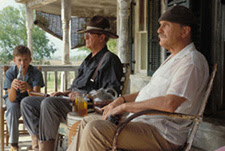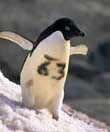Baby Boomers have been faulted by those younger, those who collectively and exasperatedly have said, "We don't care where you were when Kennedy was shot." I was 8 years old and happy to be out of school, so when I'm asked, I don't have an expanded story of tragedy and shock that many of my peers can share from November 22, 1963.
Earlier this week, my wife, younger daughter and I drove to the University of North Texas to see the video "Eye Witness to History," produced by the Dallas Morning News and journalist Hugh Aynesworth, and to hear Aynesworth's follow-up commentary.
During the Q&A session, I told Aynesworth and the Dallas Morning News moderator that it was a wrestling match to get my 16-year-old daughter to attend the program, and then asked, "Why should she care?"
The moderator patiently explained to my daughter that Kennedy shaped the lives of Baby Boomers: his call to action ... "ask not what your country can do for you; ask what you can do for your country" ... and the unprecedented ugliness that Pandora'ed out of his death.
Baby Boomers can be obsessed with the Kennedy assassination. We're all somewhere between awestruck admirers and cloak-and-dagger conspiracy theorists, grieving for the man who opened the door to civil rights and made us a proud nation of moon-walkers, but still asking, "Who shot Kennedy?"
To today's teenager, Kennedy may just be a page in a textbook. But as my professor, Samra Bufkins, explained to my daughter, we never thought something like that could happen. Then Ms. Bufkins and I began walking my daughter through the events of our childhood, just a few that shocked us into a "new reality:" Charles Whitman, the UT sniper in 1966; and the 1968 murders of Bobby Kennedy and Martin Luther King, Jr.
And then we turned to my daughter, nodded to her phone as if it was a 21st-century Walter Cronkite announcing Kennedy's death and together asked, "Does it bother you to hear about ...?" And I'm not even sure what we asked, but she knew we were talking about the 24/7, readily accessible news -- broadcast media and social media -- about school shootings and violence among kids and almost daily killings of civilians in always shifting war zones.
And she said, "It happens." Her eyes get moist, and she repeats, "It just happens."
Follow me on Twitter: @FWgib
------------------------------------------------------------------------------------------------------------
Hugh Aynesworth's career was dramatically altered, when he took the day off from his beat as a science and aerospace reporter to see President Kennedy's cavalcade pass through downtown Dallas; and he has spent the last 50 years becoming one of the most recognized researchers into the Kennedy assassination.
He is considered one of the more informed experts on the Kennedy assassination. He not only witnessed the shooting of the President in Dealy Plaza, but he was on-site when Dallas police arrested suspected assassin Lee Harvey Oswald and then when nightclub owner Jack Ruby gunned down Oswald in the basement garage of the Dallas police department.
The video is fascinating, and I'd encourage you to spend 60 minutes watching it. Aynesworth interviewed many of the key characters from the Kennedy assassination story, including officers who arrested Oswald, the Irving homeowner who befriended Oswald and his wife, Oswald's co-worker who drove him to work at the Texas Schoolbook Depository, the physician who worshipped Kennedy but had to watch him die at Parkland Hospital, and the Secret Service agent who scrambled to protect Mrs. Kennedy as she struggled to retrieve her husband's blown-away skull pieces from the trunk of the Presidential limousine.


No comments:
Post a Comment